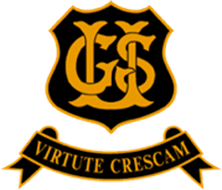Science
Throughout all areas of the science curriculum offered at Uddingston Grammar School we aim to enable learners to become scientifically literate citizens who will recognise the impact of science on their lives, the environment and society in order to allow them to understand and engage in topical scientific debate.
At all levels of the science curriculum, learners will develop skills for learning beyond the science classroom as they prepare for life-long learning and employment.
Science staff:
Miss Harker (FH) | Miss Pryce (PTPS) | Miss Connell | Miss Murphy | Mrs Bailey
Mrs Pollock | Mrs Henderson | Mrs Campbell | Ms McParland | Mr Jafry | Mr Bienkowski
SCIENCE in the Broad General Education (BGE)
At Uddingston Grammar School the S1 and S2 Science course is delivered thematically using materials written by the department to meet the CfE E’s and O’s.
The thematic approach allows students to learn about science in context and to see the connections between the discrete sciences. It is packed with challenge, active learning and opportunities for students to participate in STEM initiatives.
For avid scientists there is the weekly Science Club with fun experiments and activities.
The S1 themes are
1. I’m A scientist get me out of here!
2. CSI Uddingston
3. Sports Science
The S2 themes are
1. Lost
2. UGS 24
At the end of S2, pupils will have the opportunity to choose subjects they wish to study in S3. Pupils will have the choice of choosing to study Biology, Chemistry, Physics or a combination of the three. These would be the subjects that pupils would be expected to carry into the senior phase when entering S4.
S1 Science Club
The S1 Science club takes place on a Friday
Following on from the Science courses in the Broad General Education, pupils have the opportunity to choose discrete subjects or a general science course, incorporating topics from biology, chemistry and physics, within the Science Faculty from S3 onwards.
SCIENCE in the Senior Phase
Science is vital to developments in medicine, industry, health and the environment, to name but a few. As a scientist you need to be good at solving problems and able to explain your work to other people. You will learn how to think in a scientific and analytical way.
Science is a very practical subject and you will have the opportunity to carry out experiments and practical investigations. Science is central to our society. You will study a range of topics that demonstrate the applications of science in everyday life. This will help you to make your own decisions on contemporary issues where scientific knowledge is constantly developing.
The course has three compulsory unit, plus an added value unit that assesses your practical skills.
Science: Fragile Earth
In this unit you will:
- Choose to learn about two of the Earth’s resources: energy, food, metals or water
- Investigate how these resources are sourced, produced, and /or extracted, and about their uses and benefits
- Learn about areas of conflict associated with these resources, and identify possible local or national solutions
- Learn how science is involved in environmental issues.
Science: Human Health
In this unit you will:
• learn about factors that contribute to a healthy lifestyle through a personal, community-based and global approach
• learn how to measure physical fitness, how to investigate mental and social health issues
• research media reports of national and international health issues.
Applications of Science
In this unit you will:
- Explore science’s contribution to communication technologies and the impact these have on society and the environment
- Research the production and use of new materials
- Learn how science helps us to understand risk and how it can be reduced in modern life.
Added Value Unit: Science Assignment
In this unit you will:
- Carry out an in-depth investigation on an unfamiliar context.
SCIENCE SKILLS in the Senior Phase
The National 5 Lab Skills Course is designed to introduce candidates to the knowledge and skills which are required for employment/further study in the wide range of industries and services using laboratory science, and to develop an awareness of the opportunities and range of employment within the sector.
Pupils will explore a variety and range of industries and services and the career opportunities, in science laboratories, in a local, national and global setting. Pupils will have the opportunity to develop the basic practical skills for working in a laboratory: measuring, weighing and preparing compounds and solutions, and to understand and implement the health and safety requirements for a safe working environment. The specific practical skills related to microbiology, radioactivity, chemical handling and laboratory instrumentation are developed. Pupils will work with others to produce a plan to undertake a practical investigation to test scientific hypotheses related to a scientific topic. This will also involve reporting of the results, conclusions and evaluations of the investigation.
National 5 Lab Skills Curriculum
Careers Using Laboratory Science
Working in a Laboratory
Practical Skills
Practical Investigation
Although there is no final exam for the Lab Skills course, pupils must maintain a portfolio of work completed throughout the year.
Star Groups for S4 run for National 5 candidates to support students in achieving success.


